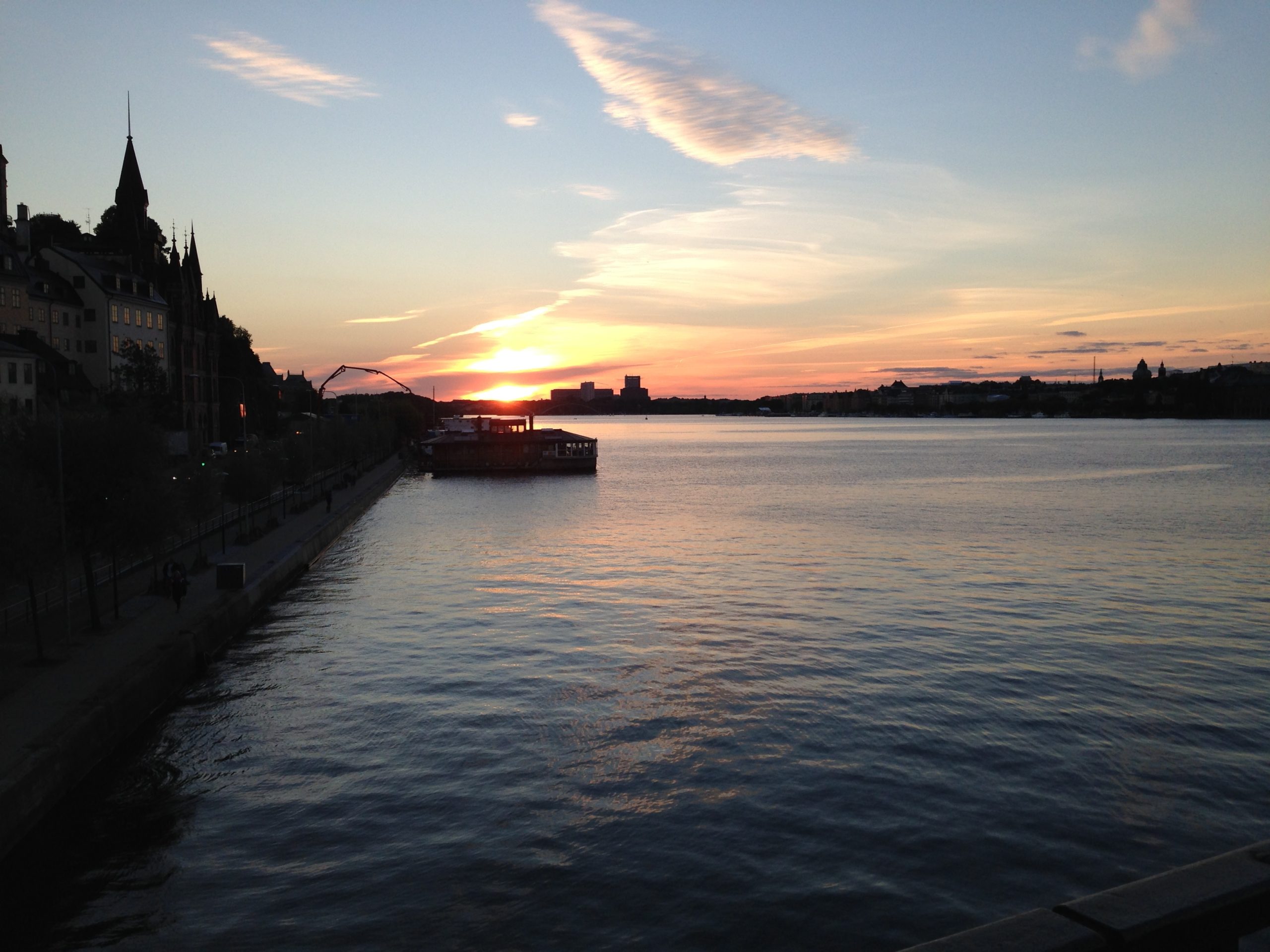Vietnam
The possibility of violent death – my own or that of a loved one – has been a part of my consciousness for as long as I can remember. My dad was in Vietnam during the war. He was there as a civilian, but was nonetheless a target. I was young and understood next to nothing about any of it, except that my daddy could be killed.
When I was older, Dad told the story of an assassin’s attempt on him and other Americans living in a walled compound. As best they could reconstruct afterwards, the man was driving a motorcycle towards the gate when his home-made bomb went off prematurely. Dad heard the explosion and ran out to see what was happening. He saw the guy’s head rolling in the street.
When, after two years, USAID posted Dad to Thailand to join me and my mother, he ceremonially destroyed the pistol he had been issued for self-protection in Vietnam. It was army green. I remember the grim look on his face as he took it to pieces and stomped the spring mechanism flat. Some of his colleagues had not survived. Their names are inscribed on memorial plaques at USAID headquarters in DC.
The fear that my father might die in Vietnam marked me for years afterward.
Indonesia
Later, when I was in boarding school in India and then college in the US, my dad and my stepmother were sometimes in danger in other places they lived. Once while I was in Texas (1982?) I heard on the news about something going on in Indonesia, where they were then living. I called their home, and one of the servants answered. We didn’t have enough language in common for me ask him about the welfare of my parents; all I knew was that they weren’t home, and I didn’t know how to ask him to take a message.
In those days, an international call to Indonesia was very expensive. I couldn’t afford to keep calling and talking to the houseman. So I used a trick my stepmother had told me to fool the phone company: place a person-to-person call through the operator, and ask to speak to your own name. With a person-to-person call, the operator never asked who was doing the calling, and as long as you didn’t actually reach the person, you weren’t charged for the call. I was a nervous liar, and didn’t like doing anything remotely dishonest, but I was also desperately afraid for my parents. I tried many times over the next several hours, always getting the servant, whom the operator (of course) couldn’t understand either.
Finally, Nancy answered the phone. “Is Deirdré Straughan there?” asked the operator. “No,” Nancy said, puzzled. “She’s in Texas.” The operator hung up the call and said: “That’s illegal, young lady.” I was ashamed and embarrassed, and couldn’t find the words to explain the whole, horrible situation – of being so afraid for my parents, but unable to afford the phone calls to find out if they were safe. Nancy called me or I called her right after that, and we established that they were ok, in spite of whatever was going on around them.
In 1984, I ended up living with them in Jakarta for eight months while trying to get a student visa to go to India. To keep busy and earn some money, I worked as a secretary in the commercial section of the US embassy.
Working in a US embassy makes you very aware of the risks that Americans, especially “official” Americans, constantly face in some countries. The Jakarta embassy, like all US embassies, was guarded by Marines. We had photo ID badges to check in at the gates, and vehicles were inspected by looking inside and running a mirror underneath before being allowed to enter. This was all normal and low-key – until the Islamic Jihad issued death threats against US and European citizens in Indonesia. Then things got tense.
Some of us retained a sense of humor. A friend and I joked that we were going to make t-shirts with bullet holes and blood, with the legend: “I survived the Islamic Jihad”. No one else seemed to find that funny. But we did survive. Nothing actually happened during the rest of my stay in Jakarta, though some months after I left a mortar or rocket was fired into the US embassy compound (it didn’t do any damage).
London
In July of ‘84, I finally gave up waiting for that visa for India, and took my grant money to do research at the India Office Library in London instead. London had for years been a target of terrorist attacks by Irish republicans. Public transport was full of signs telling people to watch out for suspicious packages, and never to pick up an unattended bag. There were no rubbish bins in stations, because a bin would be a great place to drop a package intended to later explode.
Even after the Irish Troubles ended, London never fully relaxed, and all major cities worldwide were jittery after 9/11. For good reason. In 2005, my daughter missed (by a day) being at the epicenter of the 7/7 attack. The identity and ideology of the attackers had changed, but the exact “reason” for terrorism doesn’t make much difference to the people living with the threat of it day to day.
In both Jakarta and London, I had been well aware that I could be in danger, but I don’t remember consciously being afraid that I might actually get hurt. Security precautions were simply part of my daily routine. My dad had learned a lot in Vietnam (and maybe during his training in Hawaii beforehand) about staying alert to his environment (physical, political, cultural) – lessons that he passed on to me. It’s a weird legacy, but I guess it’s been useful.
In 1986, having finally got that student visa, I was on a study abroad year in India when the US bombed Tripoli (again). And, once again, we had reason to fear retaliatory attacks on Americans abroad. To quote Kurt Vonnegut, “So it goes.”
In 1989, the Berlin Wall fell, and I felt a momentary hope that the world was becoming a safer place – something I very much wanted it to be for my new daughter. If I were to adopt a tag line like Vonnegut’s for my own writings, mine might be: “So much for that idea.”
Italy
From 1991 to 2008, I lived in Italy, which had its own scars from the Anni di Piombo (Years of Lead) – I vaguely recalled the 1978 news stories about the kidnapping and assassination of Prime Minister Aldo Moro. Then, in the late 80s/early 90s, attempts to overthrow the power of the Mafia led to more violence, particularly the assassinations of Falcone and Borsellino. Even as a recently-arrived foreigner, I felt their deaths keenly – I cried for them, and for what was happening to Italy. Previously, many Italians would have told you that the Mafia and similar crime organizations had “codes of honor” which meant they did not hurt innocent bystanders, women, or children. If that had ever been true, it certainly was no longer. They didn’t care who they killed, and everyone knew it. Yet another kind of terrorism, this time in collusion with much of the Italian government.
Meanwhile, the US seemed always to be at war, and then 9/11 happened. Americans abroad again felt like targets. I wrote: “I am eerily accustomed to this feeling of being under siege, of having to think about where I should and shouldn’t go…” The difference, after the start of the second Iraq war, was that I looked like a target to some Italians as well: Bush Jr’s war was not popular in Europe, and, by extension, neither were Americans, regardless of what any of us personally felt about that war. (My dad had thoughts, too.)
All of Europe remained nervous – for good reason – for years after 9/11/2001. Not much happened in Italy, but it could have: Italy is easily entered from so many directions. As we later learned, al Qaeda had its European headquarters in Milan for a time.
I had also lost the illusion of safety of the place I call home, Woodstock School. Most parts of the world had no such illusions long before. Living in danger, one way or another, is “normal life” for many, including in the US. The source of danger isn’t always terrorism (or isn’t labeled as such, though sometimes it should be), but the danger is very real. Feeling basically safe every day is the luxury of relatively few people in the world. Those few tend to take it for granted.
Stockholm
No, I wasn’t there – it’s been nearly a year since I’ve been to Stockholm at all. But I’ve walked that street many times, especially during two trips last winter: that was a route I took daily to the offices of a vendor I was working with to launch a website. I have even shopped in that department store. I have school friends who live in Stockholm, and of course many, many Ericsson colleagues.
As far as I know, none of them were hurt. Physically. As one friend put it: “Everyone sort of expected this at some point, but it’s still a big loss of innocence to finally be attacked.”
America lost this innocence on 9/11. But most Americans still don’t understand the corollary: not only were we vulnerable once, we are still vulnerable, and always will be. Just like everywhere else in the world. It is simply not possible to stop every would-be killer, especially those who are willing to die themselves. To live in the world – anywhere in the world – is to be vulnerable. We must learn to live with and around fear.
But we must also learn not to give in to fear, not to react based on fear, not to live in fear, and especially not to allow our fears to be used to manipulate us. These are all hard lessons. I guess I’m sorry/grateful that I had to learn them long ago.
photo: Stockholm on a September evening, a few years ago



